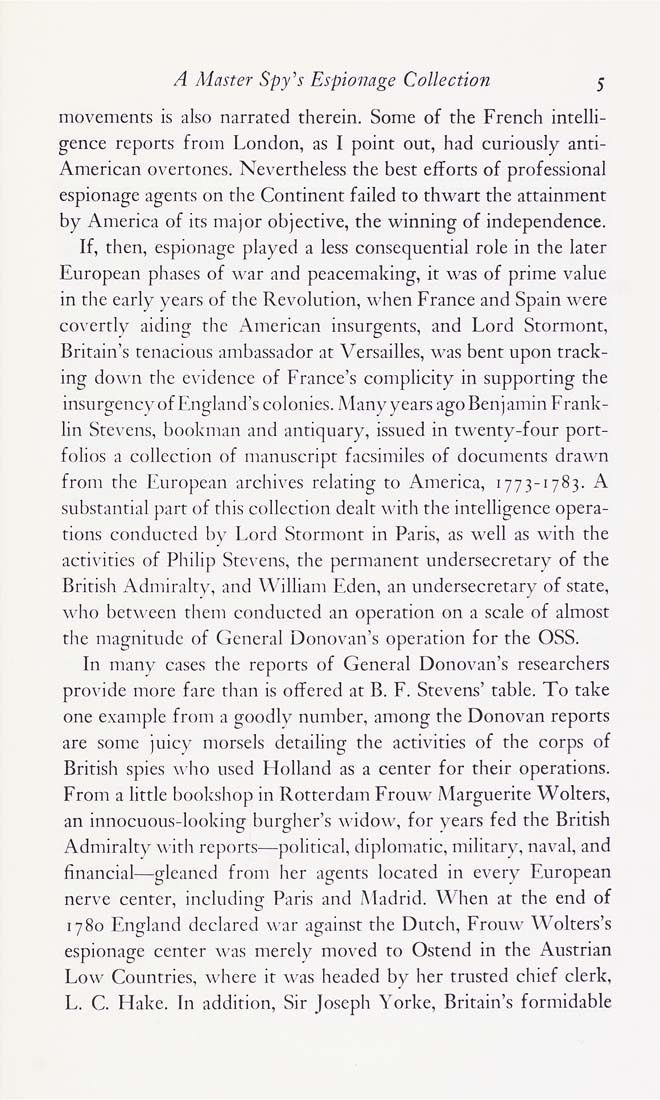Columbia Library columns (v.15(1965Nov-1966May))
(New York : Friends of the Columbia Libraries. )
|
||
|
|
|
|
| v.15,no.1(1965:Nov): Page 5 |

A Master Spy's Espionage Collection 5 movements is also narrated therein. Some of the French intelli¬ gence reports from London, as I point out, had curiously anti- American overtones. Nevertheless the best efforts of professional espionage agents <m the Continent failed to thwart the attainment by America of its major objective, the winning of independence. If, then, espionage played a less consequential role in the later European pliases of war and peacemaking, it was of prime value in the early years of the Revolution, when France and Spain were covertly aiding the American insurgents, and Lord Stormont, Britain's tenacious ambassador at Versailles, was bent upon track¬ ing down the evidence of France's complicity in supporting the insurgency of England's colonies. Many years ago Benjamin Frank¬ lin Ste\'ens, bookman and antiquary, issued in twenty-four port¬ folios a collection of manuscript facsimiles of documents drawn from the European archives relating to America, 1773-1783. A substantial part of this collection dealt with the intelligence opera¬ tions conducted by Lord Stormont in Paris, as well as with the activities of Philip Ste\ens, the permanent undersecretary of the British Admiralty, and William Eden, an undersecretary of state, who between them conducted an operation on a scale of almost the magnitude of General Donovan's operation for the OSS. In many cases the reports of General Donovan's researchers provide more fare than is offered at B. F. Stevens' table. To take one example from a goodlv number, among the Donovan reports are some juicy morsels detailing the activities of the corps of Britisli spies who used Llolland as a center for their operations. From a little bookshop in Rotterdam Frouw Marguerite Wolters, an innocuous-looking burgher's widow, for years fed the British Admiralty \\ itli reports—political, diplomatic, military, naval, and financial—gleaned from her agents located in every European nerve center, including Paris and Madrid. When at the end of 1780 England declared war against the Dutch, Frouw Wolters's espionage center was merely moved to Ostend in the Austrian Low Countries, where it was headed by her trusted chief clerk, L. C. Hake. In addition. Sir Joseph Yorke, Britain's formidable |
| v.15,no.1(1965:Nov): Page 5 |







